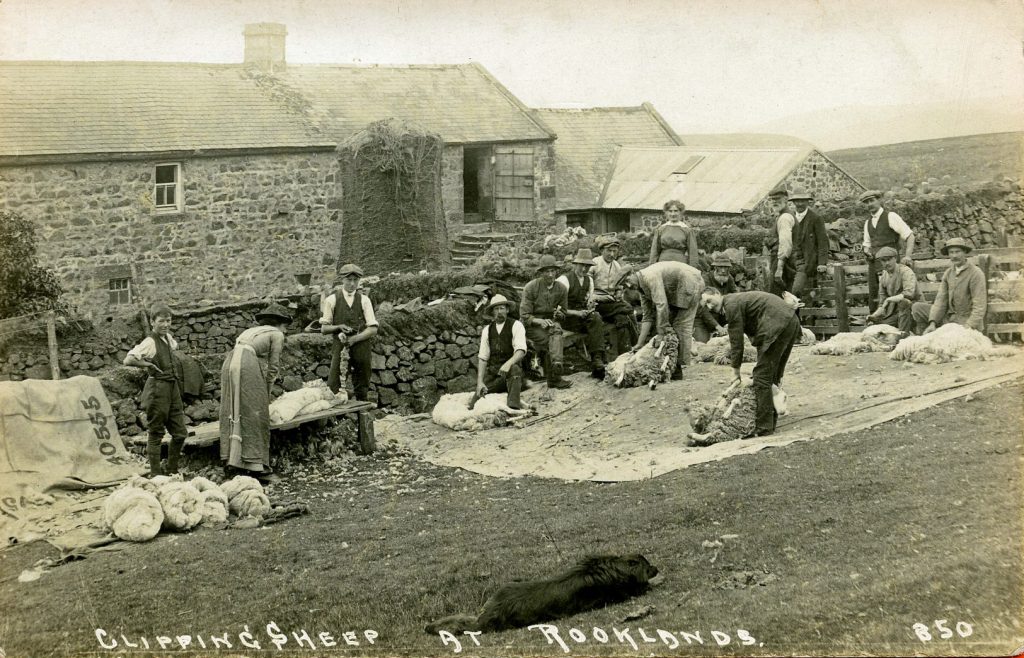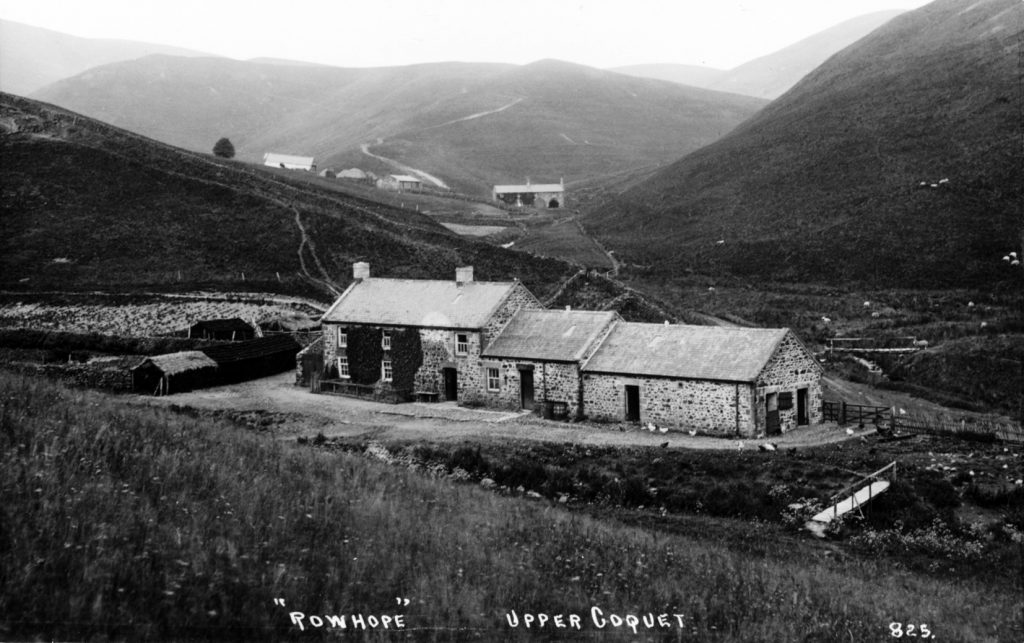Clipping Time – Hannah Hutton
Submitted by: Sally Brewis - 20th January 2022
With that expression I can hear the sound of the steel blades of hand-shears clicking away at soft white fleece, and the more precise term “shearing” brings to mind the whirr of the electric machines.
Clipping time to us was early 1960’s when Rowhope and Trows were handclipped by a gang of hired clippers. Woven into the memory is the smell of the oil in the wool, and the pungent smell of the hogg. The latter was a branding iron with the initials of the farmer (R.T. in our case). The iron was heated red in a fire which was kindled in an old drum. The hot iron was then pressed on the horn of the hoggs – this was quite painless. Hoggs is the name of “keeping ewe lambs” kept to replace “draft ewe lambs” which were sold in the Autumn.

Hoggs were usually clipped mid-June, and ewes on the second Monday of July (weather permitting). Should the gang who came for the ewe clipping be held up by wet weather at other farms, it meant our was also delayed. Unless a farm had a large shed to house heep to keep them dry we could be held up for days. This was no easy job for the wife at a farm as there were twelve to fourteen men to feed, four meals per day.
Baking was done the weekend before, no freezer in those days. Girdle scones, wholemeal fadges, ginger bread, rock buns and anything one could think of to fill up the tins. The potatoes were peeled on the Sunday night – an enamel milk-pail was used for these and the veg. also prepared. Meat was either roast mutton or brisket beef. “After” would be fruit tart, or jelly, fruit and custard made Sunday also. We were up very early on the Monday morning, 5am. We milked our two cows, then the shepherds would gather up the ewes and lambs which were held in a field, and the lambs were run-off from their mothers before breakfast. This was cornflakes, bacon and eggs with thick slices of whole-meal fadge, our own butter, and marmalade.
Lunch was twelve, and by the time the washing up was done, it was time to prepare tea for 3.30 or so. Supper was usually 6.30-7pm, and was often salad, cold meat, and scones and cheese. A long, tiring day for everyone but a lovely satisfying sight when the ewes, so white and clean, went out the hill with their lambs at night. There was always time for a crack and banter round the table at meal-times. During clipping week the young men slept in the wool sheets in the barn rather than travel from the Powburn and Wooler area, so the smell of greasy overalls filled the house at meal-times, and the day after they finished was spent scrubbing the floors, and putting furniture back. With so many to feed, we had to make space in our small kitchen to put extra leaves in our big table. It almost filled the room together with all the chairs. On busy days such as this, and the pig killing, I had the help of a friend from Alwinton. One could never have managed alone with so many meals to make.

When the diesel generators were installed in 1964 the sheep were sheared by our own men, with electric machines, and the “clipping days” were no more. Much less work for the wives; but those early days of friendship and banter were a miss for us. Another way of life was swallowed up by progress.
First published in Clippings in 1989 (reprinted 1990), published by Upper Coquetdale Publications ISBN 0 9515 380 0 4



